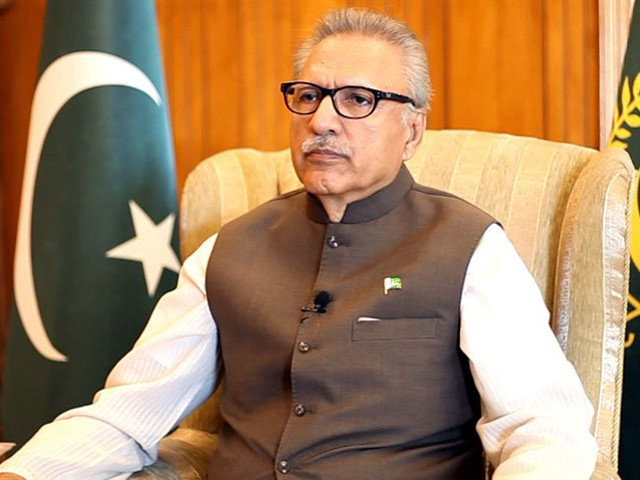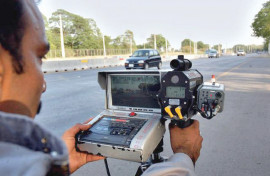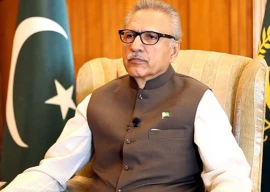
President Dr Arif Alvi on Wednesday refused to accord his assent to a bill seeking to target the suo motu powers of the chief justice of Pakistan, observing that the matter was sub júdice before the apex court.
The president returned the Supreme Court (Practice and Procedure) Bill 2023 unsigned to parliament for the second time. The bill was approved by the federal cabinet on March 28 and then passed by both the houses of parliament — the National Assembly and the Senate — only for the president to refuse to sign it into law with the observation that it travelled “beyond the competence of parliament”.
However, a joint session of parliament passed it again on April 10 with certain amendments amid a noisy protest by PTI lawmakers. It was then again referred to the president for his assent and as per the Constitution, in case of the bill not being signed by him within 10 days, his assent would have been deemed granted.
“The matter of competency of legislation and validity of the bill is sub júdice now before the highest judicial forum of the country. In deference to the same, thereto no further action is desirable,” the president said in his reply.
Read more: President returns bill limiting CJ's powers to parliament
On April 13, the Supreme Court, in an “anticipatory injunction”, had barred the government from enforcing the law, saying the move would “prevent imminent apprehended danger that is irreparable” as soon as the bill becomes an act of parliament.
“The moment that the bill receives the assent of the president or it is deemed that such assent has been given, then from that very moment onwards and till further orders, the act that comes into being shall not have, take or be given any effect nor be acted upon in any manner,” said an interim order issued by an eight-member bench.
“The court has great respect for parliament but it also has to examine if any constitutional deviation, violation or transgression has taken place while enacting the Supreme Court (Practice & Procedure) Bill, 2023,” Chief Justice of Pakistan Umar Ata Bandial, who was heading the bench, had observed.
The bench comprising Justice Ijazul Ahsan, Justice Munib Akhtar, Justice Sayyed Mazahar Ali Akbar Naqvi, Justice Muhammad Ali Mazhar, Justice Ayesha A Malik, Justice Syed Hasan Azhar Rizvi, and Justice Shahid Waheed observed that there appeared to be no authorisation under the Constitution that allows parliament to confer an appellate jurisdiction on the court, which is now being created.
Read: Govt to not accept ‘hasty’ SC verdict
The larger bench had passed the injunction while hearing a set of three petitions challenging the proposed law filed by Raja Amer Khan, Chaudhry Ghulam Hussain, and Muhammad Shafay Munir.
Article 191
On first impression, the bill appears to be premised on the approach that Article 191 purportedly sets up a hierarchy in relation to the practice and procedure of the court, the order said.
The regulation of the matters laid out in clauses 2 to 4 purports to trump anything contained in the Supreme Court rules, it said, adding that the bill seeks to reinforce this in clause 8 by giving overriding effect to its provisions over not only any “rules” but also any judgement of any court, including this court. Prima facie, this approach is a serious encroachment upon, interference with and intrusion into the independence of the judiciary, the order feared.
“Any intrusion in the practice and procedure of the court, even on the most tentative of assessments, would appear to be inimical to the independence of the judiciary, no matter how innocuous, benign or even desirable the regulation may facially appear to be,” the order explained.
Prima facie, when the bill is examined on the anvil of the most fundamental principles that underpin the Constitution, it can be regarded as seriously wanting in constitutional competence, the judgement said.
The bill also purports to confer a new appellate jurisdiction on the court however, it is highly doubtful whether parliament can do this since a right of appeal is not merely a matter of practice or procedure but is a substantive right, the order said.
It would therefore seem, that the appellate jurisdiction now sought to be conferred is beyond any competence conferred by Article 191, whether on the Supreme Court itself or any “law’’ purported to be made by parliament.



























COMMENTS
Comments are moderated and generally will be posted if they are on-topic and not abusive.
For more information, please see our Comments FAQ